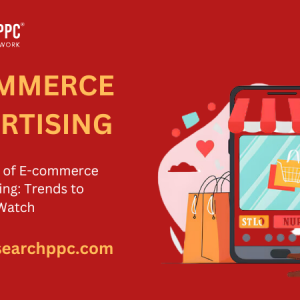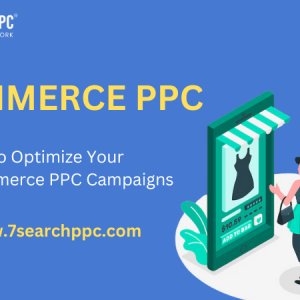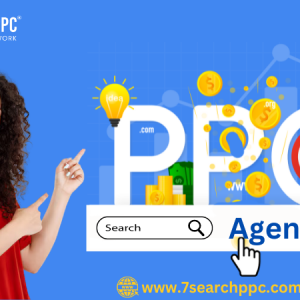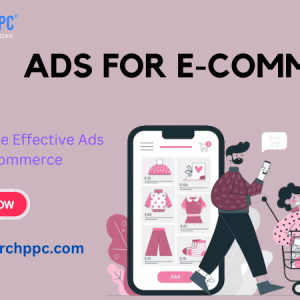Running an e-commerce business is a large feat in today's digital landscape. With millions of online stores vying for consumer attention, standing out in a crowded marketplace is more crucial than ever. One effective way to do this is through Ecommerce PPC services, which offer a powerful toolset for driving targeted traffic to your online store and increasing sales. In this article, we'll explore the benefits of Ecommerce PPC services, why they are essential for online retailers, and how they can give your e-commerce business the competitive edge it needs.
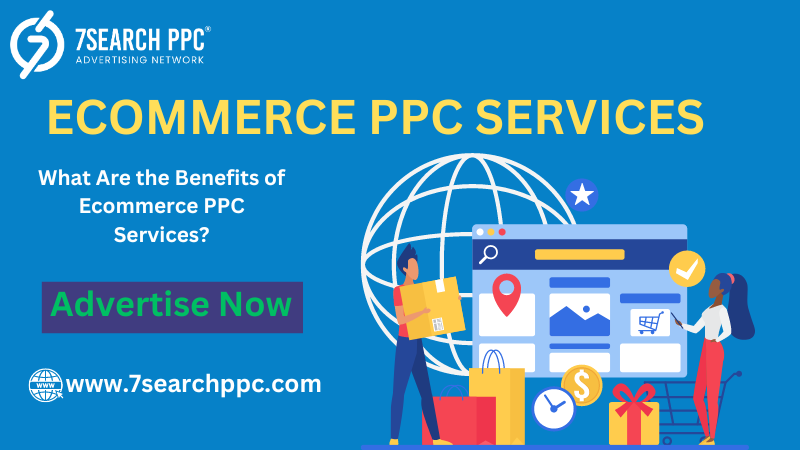
Understanding Ecommerce PPC Services
Ecommerce PPC (Pay-Per-Click) services refer to online advertising where businesses pay a fee each time one of their ads is clicked. It's a model of Internet marketing that allows e-commerce businesses to reach their target audience more efficiently. These services are designed specifically to cater to the needs of e-commerce platforms, helping them boost visibility, drive traffic, and convert visitors into customers.
PPC for Ecommerce can be implemented across various platforms, including Google Ads, Bing Ads, and social media channels like Facebook, Instagram, and LinkedIn. The key to its effectiveness lies in targeting the right audience with the right message at the right time, ensuring that every click has the potential to turn into a sale.
Benefits of Ecommerce PPC Services
Instant Traffic and Visibility
One of the most significant benefits of Ecommerce PPC services is the ability to generate immediate traffic. Unlike organic SEO efforts that can take months to show results, PPC advertising for e-commerce can drive potential customers to your site almost instantly. By bidding on relevant keywords, your ads can appear at the top of search engine results pages (SERPs), giving your business prime real estate where customers are most likely to click.
Targeted Advertising
PPC for Ecommerce allows businesses to target their ads to specific demographics, locations, devices, and even times of the day. This level of precision targeting ensures that your ads are seen by those most likely to be interested in your products. For example, if you’re selling winter coats, you can target colder regions during the winter season, maximizing the relevance and impact of your ads.
Cost-Effective Marketing
PPC advertising for e-commerce is cost-effective because you only pay when someone clicks on your ad. This model ensures that your marketing budget is spent on attracting actual visitors rather than merely generating impressions. Additionally, with the right strategy, the return on investment (ROI) can be substantial, as PPC campaigns can be scaled and adjusted based on performance, ensuring that you get the most out of every dollar spent.
Measurable Results
One of the standout features of Ecommerce PPC services is the ability to measure and track the performance of your campaigns in real time. You can monitor metrics such as click-through rates (CTR), conversion rates, cost-per-click (CPC), and overall ROI. This data-driven approach allows for continuous optimization, helping you refine your campaigns to achieve better results over time.
Flexibility and Control
PPC for Ecommerce offers unmatched flexibility and control over your advertising campaigns. You can set your budget, choose your keywords, and decide when and where your ads will appear. This level of control allows you to tailor your advertising efforts to meet the specific needs of your business. Whether you want to launch a short-term promotional campaign or maintain a long-term advertising presence, PPC services provide the tools to do so effectively.
Brand Exposure
Even if a user doesn't click on your ad, the mere appearance of your brand at the top of search results can boost brand recognition. Consistent exposure through Ecommerce PPC services can help establish your brand as a leader in your niche, making consumers more likely to consider your products in the future. Over time, this increased brand visibility can translate into higher organic traffic and more sales.
Competitive Advantage
The e-commerce landscape is fiercely competitive, with new businesses entering the market daily. Ecommerce PPC services provide a way to gain a competitive edge by putting your products in front of potential customers before they see your competitors. By bidding on the right keywords and optimizing your campaigns, you can capture market share and establish your brand as the go-to option for consumers.
Scalability
As your business grows, so can your PPC campaigns. Ecommerce PPC services are highly scalable, allowing you to increase your budget, target new markets, and expand your reach as needed. This scalability makes PPC an ideal marketing strategy for e-commerce businesses of all sizes, from startups to established brands.
Access to the Best Ad Platforms
With Ecommerce PPC services, you gain access to some of the best ad platforms for e-commerce, including Google Ads, Facebook Ads, and Instagram Ads. These platforms have massive user bases and offer advanced targeting options, ensuring that your ads reach the right audience. Additionally, these platforms continuously update their algorithms and features, allowing you to stay ahead of the curve in the ever-evolving digital marketing landscape.
Improved Conversion Rates
The ultimate goal of any e-commerce business is to convert visitors into customers. Ecommerce PPC services are designed to do just that by driving highly targeted traffic to your site. By focusing on relevant keywords and delivering a compelling message, PPC advertising for e-commerce can significantly improve your conversion rates, leading to increased sales and revenue.
Conclusion
Ecommerce PPC services offer a multitude of benefits for online retailers looking to grow their business. From instant traffic and targeted advertising to measurable results and competitive advantages, PPC for Ecommerce provides the tools and strategies needed to succeed in the digital marketplace. By leveraging these services, you can boost your brand visibility, drive more qualified traffic to your site, and ultimately, increase your sales and revenue.
As with any marketing strategy, the key to success with Ecommerce PPC services lies in careful planning, continuous optimization, and staying up-to-date with the latest trends and best practices. With the right approach, PPC advertising for e-commerce can be a game-changer for your business, helping you achieve your goals and reach new heights.
FAQs
What is Ecommerce PPC?
Ans. Ecommerce PPC is a form of online advertising where e-commerce businesses pay a fee each time someone clicks on their ad. It’s a way to drive targeted traffic to an online store and increase sales.
Why is PPC important for e-commerce?
Ans. PPC is crucial for e-commerce because it provides instant traffic, allows for precise targeting, and offers measurable results. It helps businesses reach their target audience more effectively and achieve higher conversion rates.
How can I optimize my Ecommerce PPC campaigns?
Ans. To optimize your Ecommerce PPC campaigns, focus on selecting the right keywords, crafting compelling ad copy, and regularly analyzing and adjusting your campaign based on performance metrics.
Which platforms are best for Ecommerce PPC?
Ans. Some of the best platforms for Ecommerce PPC include Google Ads, Facebook Ads, and Instagram Ads. These platforms offer extensive targeting options and access to a large audience base.
Is PPC advertising cost-effective for e-commerce?
Ans. Yes, PPC advertising can be very cost-effective for e-commerce, especially when campaigns are well-optimized. You only pay for clicks, and the ROI can be substantial with proper targeting and strategy.
How does Ecommerce PPC compare to SEO?
Ans. While SEO focuses on organic traffic, PPC provides instant traffic through paid ads. Both strategies are important for a well-rounded digital marketing plan, but PPC offers quicker results and more control over targeting.
What are the key metrics to track in an Ecommerce PPC campaign?
Ans. Key metrics to track include click-through rates (CTR), conversion rates, cost-per-click (CPC), and return on investment (ROI). These metrics help you measure the effectiveness of your campaign and make necessary adjustments.



